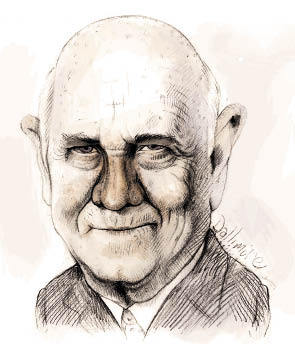I almost punched an Englishman the other day. We were sitting in a bar, talking about the 20th anniversary of F.W. de Klerk’s Great Leap Forward of 2 February 1990 — the day he rocked the world by announcing that he was about to unban the revolutionary movements, free Nelson Mandela and turn South Africa into a land of peace and justice. I was explaining why I thought de Klerk’s move was an act of heroism almost unparalleled in the history of humankind, but the Englishman didn’t want to know. ‘De Klerk was a loser,’ he said, ‘a racist battered into submission by sanctions, township violence and global isolation, and then forced to do a decent thing that should have been done decades earlier.’ The corollary was of course that Mandela was a sweet old man who shouldn’t have been locked up at all, and the ANC an army of hymn-singing moderates who just wanted to establish a democracy like Great Britain’s. Like I say, I wanted to moer him, and I’d better explain why.
De Klerk’s February speech changed everything in South Africa forever. In weeks to come, there’s going to be a lot of debate about this — the consequences that were good, those that weren’t, his alleged failures at the negotiating table and so on. There will also be a revival of the old debate about what exactly pushed de Klerk over the edge. Pop psychologists will say he must have had a Damascus Road experience, something that caused him to abandon apartheid and embrace the brotherhood of man, but there is no hint of any such event in de Klerk’s autobiography. Rightwingers will accuse him of selling out to international capitalism, but that’s even more absurd than the leftist notion that he was brought to his knees by a ‘catastrophic’ military defeat at Quito Carnavale.







Comments
Join the debate for just £1 a month
Be part of the conversation with other Spectator readers by getting your first three months for £3.
UNLOCK ACCESS Just £1 a monthAlready a subscriber? Log in